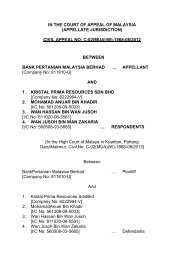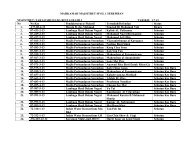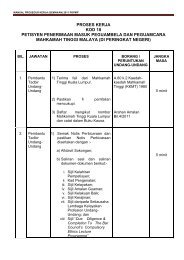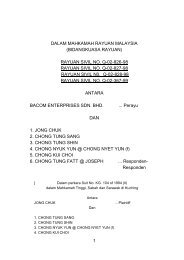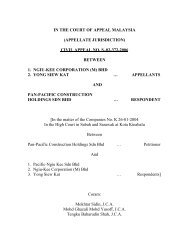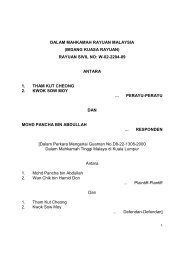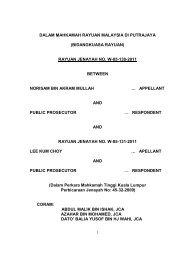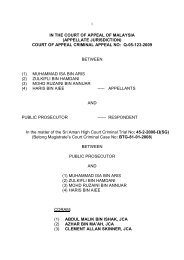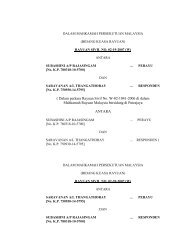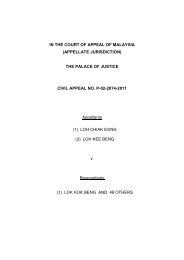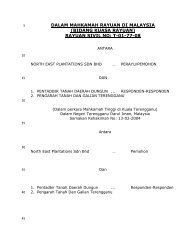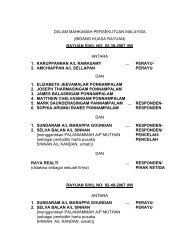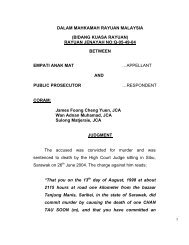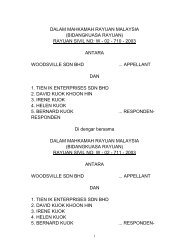rayuan sivil no. j – 02– 641 – 2006 antara ng see liang
rayuan sivil no. j – 02– 641 – 2006 antara ng see liang
rayuan sivil no. j – 02– 641 – 2006 antara ng see liang
Create successful ePaper yourself
Turn your PDF publications into a flip-book with our unique Google optimized e-Paper software.
4<br />
the true intention of the purchaser. The question<br />
whether the purchaser in a particular case had a<br />
donative intention is to be determined objectively<br />
through a meticulous examination of the facts and<br />
evidence of the surroundi<strong>ng</strong> circumstances. If<br />
after such an examination the court concludes that<br />
there was a donative intention on the part of the<br />
purchaser that is the end of the matter and there is<br />
<stro<strong>ng</strong>>no</stro<strong>ng</strong>> room for the operation of the presumption of<br />
resulti<strong>ng</strong> trust or advancement as the case maybe.<br />
It is only where there are <stro<strong>ng</strong>>no</stro<strong>ng</strong>> or insufficient facts or<br />
evidence from which a fair inference of intention<br />
maybe drawn that a court should turn to<br />
presumptions as a last resort to resolve the<br />
dispute. As Devlin L.J observed in Berry v. British<br />
Transport Commission [1961] 3 All ER 65, 75:<br />
‘... presumptions of law ought to be used<br />
only where their use is strictly necessary<br />
for the ends of justice. They are<br />
inherently undesirable ... because they<br />
prevent the court from ascertaini<strong>ng</strong> the<br />
truth, which should be the prime object of<br />
a judicial investigation, and because, if<br />
they are allowed to multiply to excess, the<br />
law will become divorced from reality and<br />
will live amo<strong>ng</strong> fantasies of it is own.’



